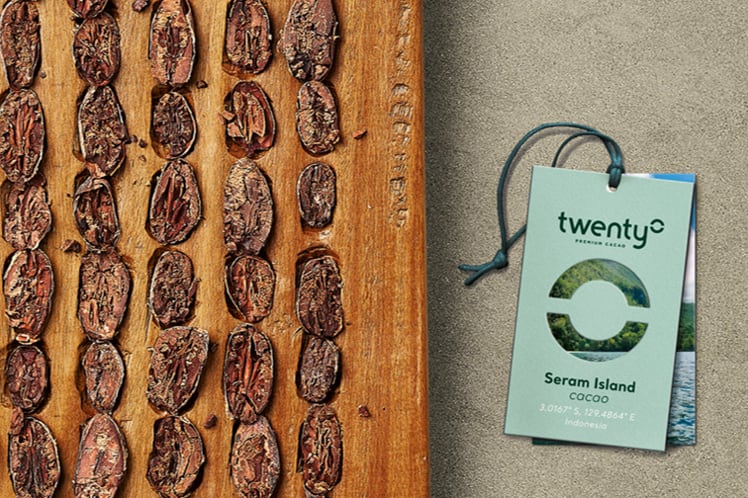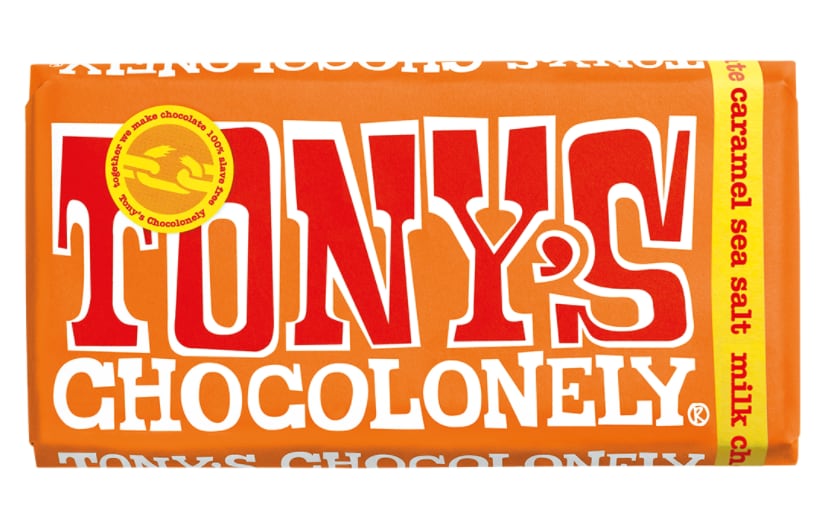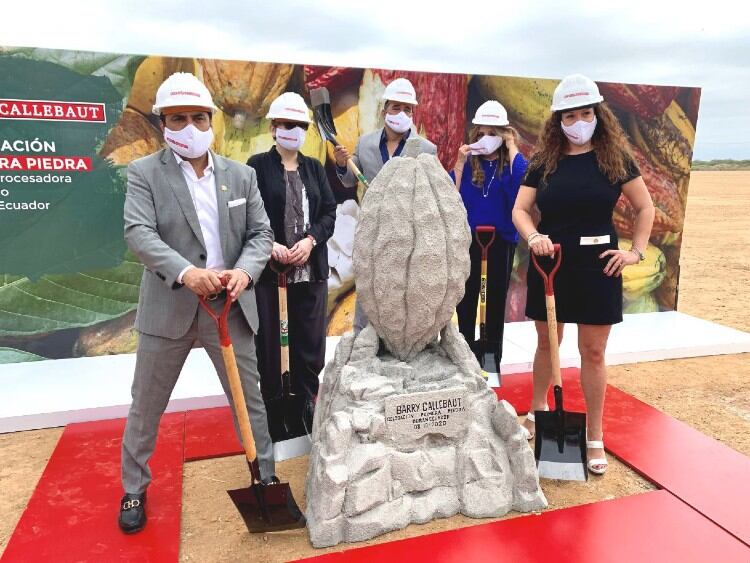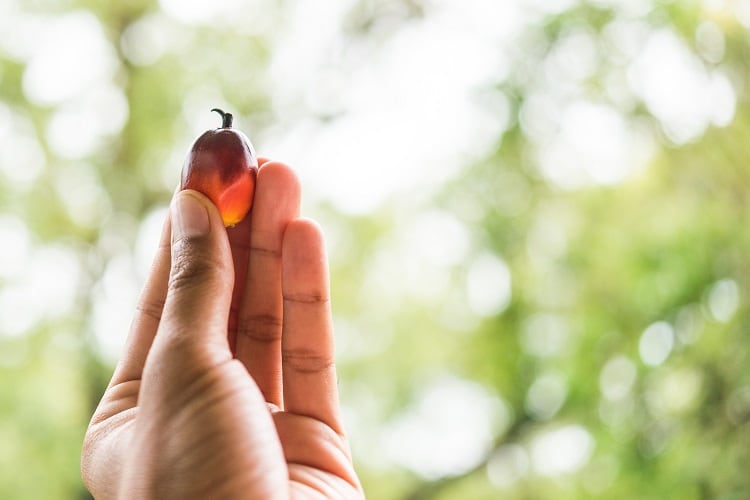Olam Cocoa has launched a new speciality cocoa business that will source premium quality, fully traceable cocoa beans from around the world.
Twenty Degrees is named for the cocoa belt that reaches twenty degrees north and south of the equator. Its mission is to source premium quality cocoa beans from ten ‘unique regions’ that have been ‘handpicked’ for their ‘distinctive flavour and sensory profile’.
Premium chocolate offering
Twenty Degrees is targeting the premium chocolate market which, Palmer said, has seen ‘significant growth’. He observed this has been driven by evolving consumer expectations, as greater numbers of shoppers seek provenance, high quality, artisanal products with a ‘unique flavour and story’.
“At the moment the available volume on each of the grade is limited by the hectarage of each of the farmer groups or single-estates (which ranges from 15 to 600 hectares), but we are hoping that to continue to grow the groups as demand increases,” he revealed.
All of Twenty Degrees’ cocoa is single origin and fully traceable. This is achieved through a combination of ‘boots on the ground’ and traceability technology, Palmer explained.
“We have an on-the-ground presence in most cacao producing countries. Because we have boots on the ground, our cacao is bought from the farmers and we know the price they are paid, the community they live in, the carbon footprint, and so on. We’ve used our in-house mobile app to polygon map the farms and to provide complete farmer profiles of each of the members of the farmer groups. Through our partnership with AtSource, it will be possible for customers to track environmental and social metrics that sit behind the cacao they buy, for example the carbon footprint of the cacao which we have offset to be able to offer carbon neutral beans.”
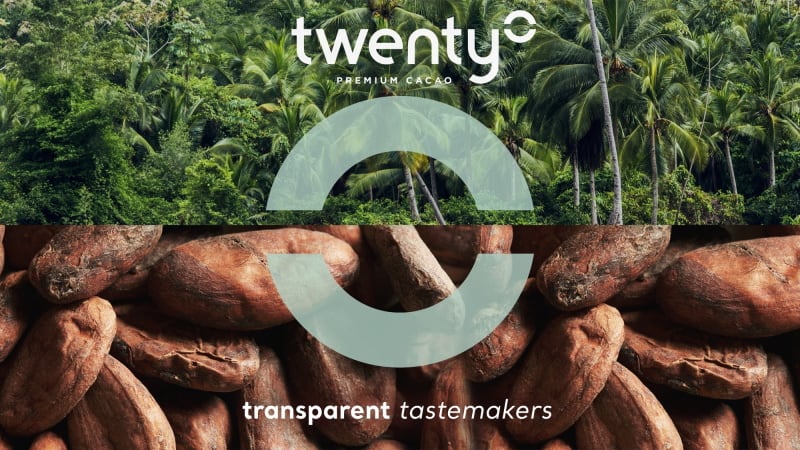
Customers will pay a premium price for this premium product. And Twenty Degrees is committed to full pricing transparency.
“This cacao will be sold at a premium which reflects the additional investment in bringing these beans to market and the work done at origin. The pricing model starts with the price paid to the farmer and adds on a sensory premium (based on criteria like the uniqueness of the flavour profile, the rareness of the genetics and the complexity of the post-harvest practice) and an impact premium (based on criteria like environmental impact, traceability level, and gender empowerment initiatives).”
Higher prices will feed through to higher payments to farmers, Palmer stressed. “A premium is paid on top of the market value of the beans and we offer full pricing transparency to customers buying our beans.”
The importance of ‘positive partnerships’
More than a simple price premium, Twenty Degrees is supporting the development of remote farming communities by providing cocoa growers with access to international markets.
“In many of the communities we’re working with, cacao is often one of the few - or only - sources of income or jobs. Our model is built on positive partnerships with farmers and customers, as this is key to the long-term development of the communities we’re working with,” Palmer told us.
The company is working with communities that already produce cocoa but who may have difficulty bringing their product to market due to their remote or inaccessible locations.
Case Study: Seram Island, Indonesia
“On Seram Island in Indonesia, for example, we’re working with the only cacao producer on the island, a single-estate plantation where growers work to the highest professional standards to produce a cacao of exceptional quality.
“The plantation plays an important role in providing work opportunities for the tribal communities in the surrounding hills on the edge of Manusela National Park, employing people from 19 local villages, 40% of whom are women.
“We’re also engaging closely with the local community to improve the local infrastructure and facilities, including establishing a clinic facility and the renovation of the local church and mosque, as well as elementary school on the plantation which provides an education to most of the workers’ children.” - Leopold Palmer, business head, Twenty Degrees
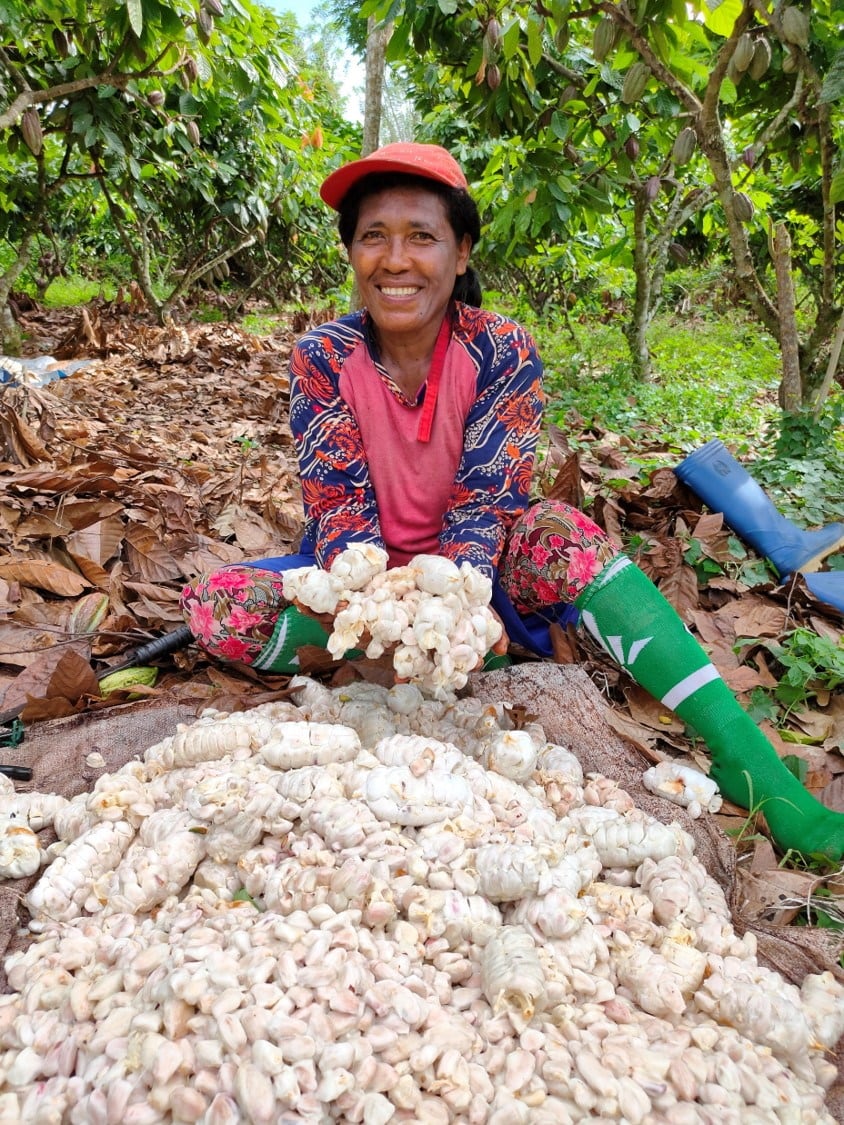
“Twenty Degrees is all about uncovering great cacao from established as well as undiscovered terroirs. There are remote communities all around the cocoa belt that have been growing cacao for generations, but struggle to bring their beans to market. Their operations are either too specialist or too remote to be sold to mainstream manufacturers and so their exceptional produce sadly goes undiscovered by many,” Palmer explained.
“While living and working in Ecuador, for example, I came across the indigenous Eperara community who live deep in the coastal rainforest. Their home is so remote, the only way to reach it is by boat. There, cacao has been farmed, dried and fermented using traditional methods for generations. Their cacao has a truly unique flavour and story, perfect for craft chocolate makers looking for artisanal ingredients with a distinctive sensory profile. Through Twenty Degrees, we’ve been able to establish a model that will help these farmers bring their beans to a growing market.”
But is there a risk that, by developing cocoa production in these remote locations, Twenty Degrees could inadvertently accelerate land conversion in already diminishing tropical rainforests?
Palmer does not believe this is a concern and Twenty Degrees is working to support the use of agro-ecological practices.
“This starts with mapping the areas so we know exactly where the farms are and where their boundaries are. This gives us comfort that there is not overlap with protected areas,” he stressed.
“We run sustainability and community programmes with our team of agronomists to help develop responsible farming practices. This often involves working with farmers and cooperatives to get certified, for example we are aiming to have 6 out of 10 grades certified organic by March 2021. We have also made mapped the carbon footprint for 8 out of 10 grades, and offset this impact by purchasing carbon credits.”
Ultimately, Twenty Degrees wants it’s entire portfolio to be made up of net-zero cocoa. “Over time, our goal is to offer the entire portfolio with the carbon neutral commitment.”
“We’re on a mission to change the way we think about premium cacao. We’re exploring new territories and discovering fresh terroirs in established growing regions, uncovering unique cacao beans farmed to the highest quality with the greatest possible positive impact. And we’re doing this in a way that is transparent, traceable and delivers quality, consistency and taste to meet the needs of craft chocolate makers.”

